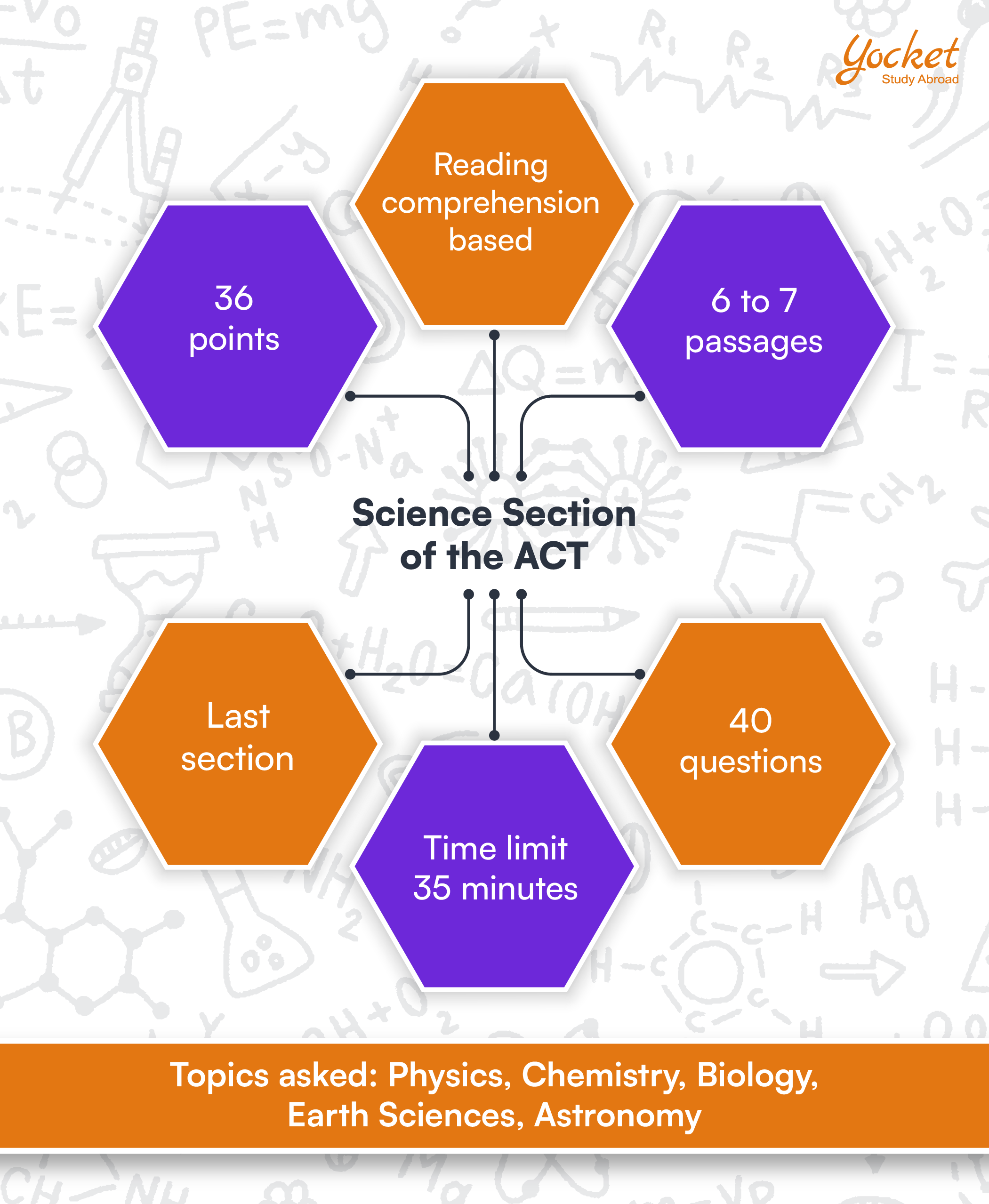Before we dig deeper into the ACT science section or its question type, let us familiarize ourselves with the structure or the layout of this section:
- Firstly, ACT science is the last section of the ACT exam.
- Its weightage is 1/4th of the total score. Just like all the other sections, this section is also 36 points.
- The format of this section is more like reading comprehension. There are passages regarding scientific research, graphs, charts, etc. There are around 6 to 7 passages.
- There are 40 questions in this section.
- The time limit for this section is 35 minutes. This means that one has approximately 52 seconds.
Suggested: A Guide to ACT Exam Preparation
ACT Science Content
The ACT science section focuses more on scientific skills than cramming scientific facts. If you can understand the research topics and analyze graphs, you can pretty much ace this section. This section isn’t about how much conceptual knowledge one has but about how you can use that knowledge when faced with evaluating a hypothesis, analyzing data, and coming up with reasoning for the hypothesis.
The ACT science topics include physics, chemistry, biology, earth sciences, and space sciences.
Now, let’s look at the types of passages in-depth:
Suggested: What is a Good ACT Score?
Types of Passages in ACT Science
There are around 6 to 7 passages in the science section based on research topics.
- Research summaries: they are summaries of different scientific experiments and research. There are times when you are asked to draw a comparison between two scientific research experiments. There are generally graphical representations in such passages. There are around 2 to 3 passages based on research summaries.
- Data representation: in these kinds of passages, you are provided with the data related to a scientific subject. Although having some knowledge about the subject will be helpful, it’s not necessary. One needn’t be an expert on the topic but be able to read and understand the data, analyze the data provided and conclude the solution from the findings. There are around 2 to 3 passages based on data representation.
- Conflicting viewpoints: just as the name suggests, this passage deals with comparing two different viewpoints or hypotheses on the same subject. You have to analyze the similarities and differences in the viewpoints of two different researchers or scientists doing scientific research on the same subject. There is only one passage based on conflicting viewpoints.
Suggested: What is ACT Exam Eligibility?
Now that we have covered the types of passages asked in the ACT science section let us focus on the ACT science syllabus and the subjects from which questions are asked:









